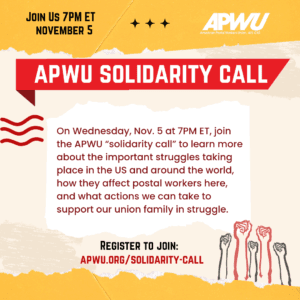July 24, 2014
OUR Walmart, Fast-Food Workers Inspire Convention Delegates
The Convention theme of Stand Up, Fight Back was on display Tuesday and Wednesday when two of the most exciting labor struggles in the country honored the assembly with their presence. Fast-food workers and Walmart workers are on the cutting edge of labor struggles today. In the anti-union and pro-business environment encouraged and enforced by the 1% and their henchman in state houses and Congress, these workers are inspiring all workers to fight back.
In the fast-food industry, the “Fight for 15” campaign began in November 2012, when fast-food workers joined together to fight the corporate giants, including McDonalds, Burger King and Wendy’s.
Many in the industry do not earn enough to cover basic necessities, such as food and housing. Speaking at the convention on Tuesday, Jessica Davis, a 26 year-old fast-food worker said, “I joined [Fight for 15 Campaign] because I wanted justice. Thousands of workers in Chicago and across the nation are standing up and saying enough is enough.”
Fast-food jobs are no longer temporary or part-time positions held by teenagers; for many families it is the source of their entire livelihood. Without a livable wage, 52 percent of fast-food workers are forced to depend on public assistance to provide for their families.
Davis, who has worked for four years at McDonald’s earns $8.98 an hour. Meanwhile, McDonald’s reported net profits of $5.6 billion in 2013.
At the opening of Wednesday’s convention, members of the Organization United for Respect at Walmart (OUR Walmart) shared news about their struggle. OUR Walmart is demanding annual wages of at least $25,000, more full-time openings and an end to retaliation against workers who speak out against poor working conditions.
“I’m a mother of three and I do have to work a second job to make ends meet, working for the biggest retailer in the world,” said Walmart worker Linda Haluska. “I shouldn’t have to do that.”
Although Walmart had earnings of $16 billion last year, it pays its employees so little that many must rely on food stamps and other subsidies just to get by.
“I’m making less than $14,000 a year,” said OUR Walmart activist Richard Wilson. “At the end of the day, you’re just another number on the bottom line. Walmart has to do better by paying its workers a livable wage. We’re fired up and we are not going to take it anymore,” he said.
In an impressive display of solidarity, convention delegates unanimously adopted resolutions supporting the fast-food and Walmart workers in their campaigns for justice.



